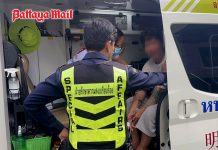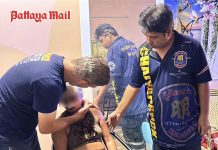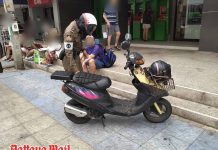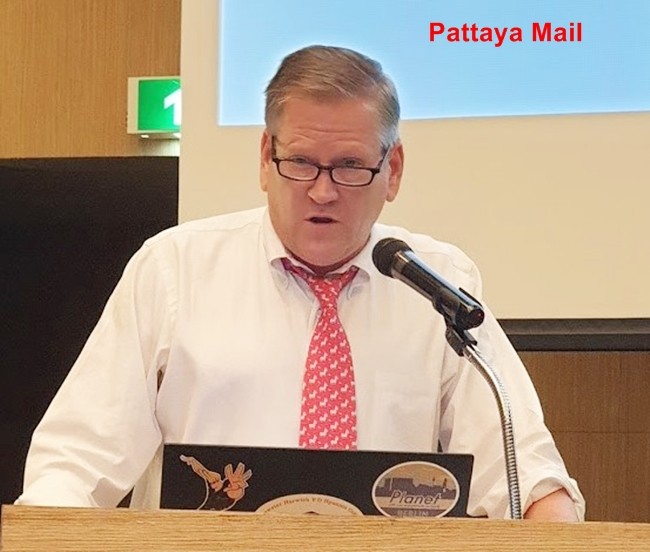
The Pattaya City Expats Club was privileged to have Phil Robertson, Deputy Asia for Human Rights Watch, as the guest speaker at their October 28 meeting. Phil is based in Bangkok, but has responsibilities for monitoring activities in Asia.
Please Support Pattaya Mail
He began his presentation with a video showing some of the many Human Rights Watch activities worldwide. He said their primary purpose is to monitor for compliance countries that have ratified Human Rights treaties. He mentioned that their headquarters is in New York and that they are the largest tenant in the Empire State Building.
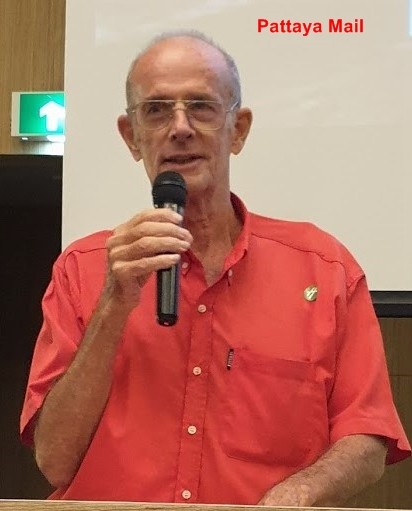
Further, they are structured with two types of divisions. One group is geographic, which is for Africa, the Americas, Asia, Europe & Central Asia, and Middle East & North Africa, and one specific for the United States. The other thematic divisions focus on specific issues and are for Arms; Business & Human Rights; Children’s Rights; Disability Rights, Environmental Health Rights, Terrorism & Counterterrorism; Health & Human Rights; International Justice; Lesbian, Gay, Bisexual &Transgender Rights; Refugees; and Women’s Rights.
Phil said that the geographic and thematic divisions work together. He has responsibility for the geographic region of Asia, but can call on the expertise of researchers from the thematic divisions when they are investigating a human rights issue. He mentioned that their funding comes from donations from different sources, but Human Rights Watch will not accept any from countries or others that are subjects of their investigations. Their primary function is to “Investigate”, “Expose”, “Change.”
Investigation involves researchers working in the field uncovering facts that create an undeniable record of human rights abuses. They rely heavily on interviews with victims, but do not accept such as the only evidence. The information obtained is then verified through other means, including documentation, observation, and other credible sources. An example of this from the video was the use of a drone to enter an inaccessible canyon and confirm that bodies had been thrown into it.
Exposure is in telling the stories of the human rights abuses with the news media, social media, and other means. Publicity is used to shame and blame those that are violating basic human rights.
Change is their objective. They do this not only in the recommendations they make in their reports, but through meetings with governments, the United Nations, corporations, and others to see that policy is changed, laws are enforced, and justice is served. One avenue is to bring matters to the International Court.
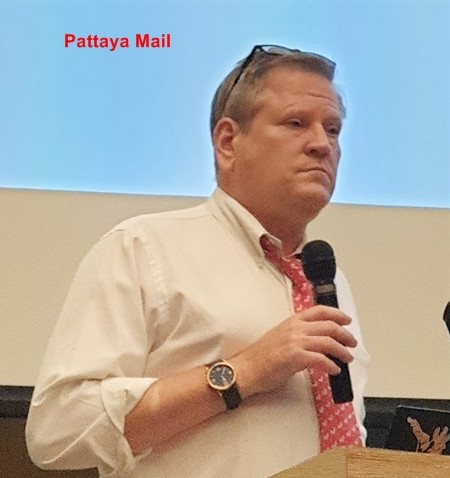
Phil serves as a human rights advocate engaging with government and UN agency officials, a spokesperson representing the organization’s views who regularly contributes to national and international media stories on SE Asia, a strategic campaigner on rights cases and causes, and a researcher and writer on topics of human rights, labor rights, refugees and migration.
Prior to joining Human Rights Watch in 2009, he worked for fifteen years in Southeast Asia on human rights, labor rights, protection of migrant workers, and counter-human trafficking efforts with a variety of non-governmental organizations, international and regional trade union federations, and UN agencies. Phil mentioned that in the early years he spent much of his time in the border region with Laos. In order to do his work, it was essential that he learn to speak Thai and Lao, which is why he is now fluent in those languages.
Phil highlighted some of their activities in Burma (Myanmar), Cambodia, and North Korea, which are of primary concern at this time. Alleged human rights violations can occur anywhere and at any time. Consequently, he often acts as a rapid response person to assess the situation and, if needed, call in their researchers to assist.
The holiday season around Christmas time and New Year’s is when they watch out for the “Holiday Surprise.” This is the season when many western embassy staff and others return home to celebrate the holidays. Thus, it is not unusual for some governments to commit human rights abuses at this time when they think no one is looking. Phil cited a couple of instances when this has occurred, but because they look for such actions, they were observed and reported.
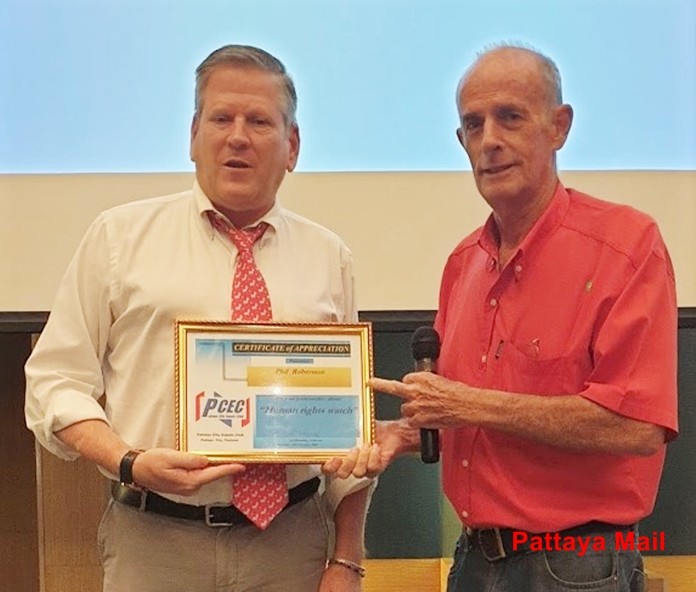
After the presentation, MC Stuart Saunders brought everyone up to date on the latest announcements and called on member Brian Maxey to conduct the Open Forum, where attendees can make comments or ask questions about Expat living in Thailand, especially Pattaya. For more information visit the PCEC’s website at www.pcec.club
To view a video of the diabetes presentation, visit: https://www.youtube.com/watch?v=_Rh91MH1F-g&feature=youtu.be
 |
 |
 |



